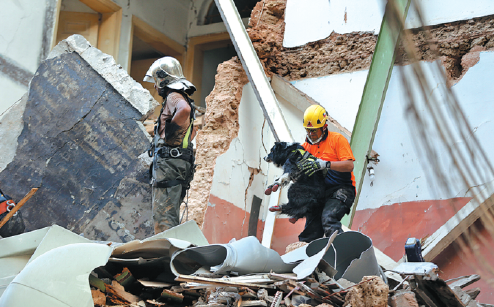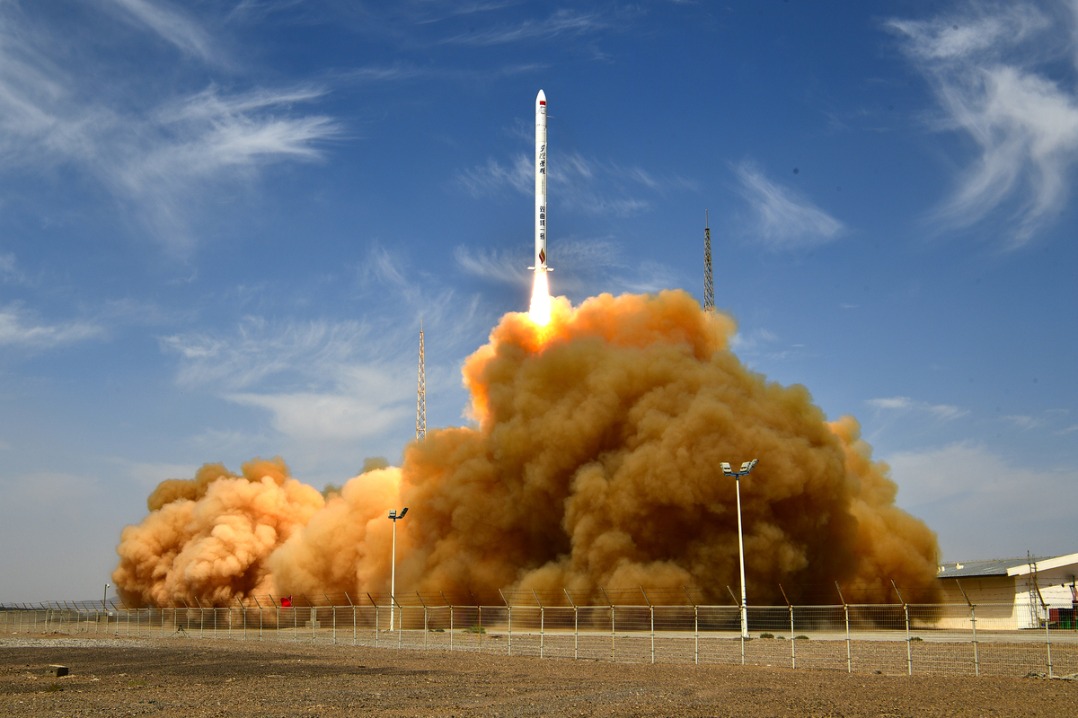Prayers for a miracle, but finally there was none

BEIRUT-Rescue workers digging through the rubble of a Beirut building for the third day on Saturday said there was no longer hope of finding anyone alive more than a month after a massive port explosion shattered Lebanon's capital.
About 50 rescue workers and volunteers, including a specialist team from Chile, had worked for three days to locate anyone after sensors on Thursday detected signs of breathing and heat.
"Technically speaking, there are no signs of life," Francisco Lermanda, the head of the volunteer rescue group Topos Chile, said in a news conference on Saturday evening, adding that rescuers had combed 95 percent of the building.
The signs of life detected in the past two days, Lermanda said, were breaths of fellow rescuers already inside the building picked up by their sensitive equipment. Efforts would now focus on clearing the rubble and finding remains, he said.
"We never stop with even one percent of hope," Lermanda said, of finding a body."We never stop until the job is done."
The blast on Aug 4 killed about 190 people, injured 6,000 more and devastated whole neighborhoods. The authorities held ceremonies on Friday to mark a month since the explosion tore into a city already reeling from a crippling economic crisis.
Rescue efforts dominated local and social media, as the Lebanese were transfixed, desperate for a miracle. None came.
The ruined building where the search was continuing lies between the residential districts of Gemmayze and Mar Mikhael, among the areas hit hardest by the blast and home to many old buildings that crumbled as the shock wave ripped through.
Work was slow, rescue workers said earlier in the day, as the badly damaged building was at risk of complete collapse.
"The building is really crumbling, it's scary and there's a lot of danger to the team," said George Abou Moussa, head of Lebanon's civil defense.
Workers used shovels and their hands to dig, while mechanical diggers and a crane lifted heavy debris. Scanning equipment was also used to create 3D images of the wrecked building.
In the city of Tripoli, in a factory, shovel-loads of shards retrieved from the Beirut blast re-emerged as molten glass ready to be recycled into traditional slim-necked water jugs.
Glass recycled
Volunteers, nongovernmental groups and entrepreneurs have tried to salvage at least part of the tonnes of glass that littered the streets, some of it through recycling at Wissam Hammoud's family glass factory.
"Here we have glass from the Beirut explosion," said Hammoud, deputy head at the United Glass Production Company, as several men sorted through a mound of shards outside the building.
Ziad Abichaker, chief executive officer of environmental engineering company Cedar Environmental, has spearheaded multiple glass recycling initiatives in Lebanon.
In the first days after the blast, he teamed up with civil-society organizations and a host of volunteers to come up with a plan to keep as much glass as possible out of landfills already overburdened by a decades-old solid waste crisis.
Agencies Via Xinhua

Today's Top News
- China and US agree to extend tariff rates after two-day talks in Stockholm
- US, China trade talks candid, in-depth, constructive, says China intl trade representative
- China unveils delegation for Chengdu World Games
- Xi urges youths to champion vision of peace
- All-out relief efforts underway in flood-hit regions
- Crucial to foster stable China-ROK ties






























